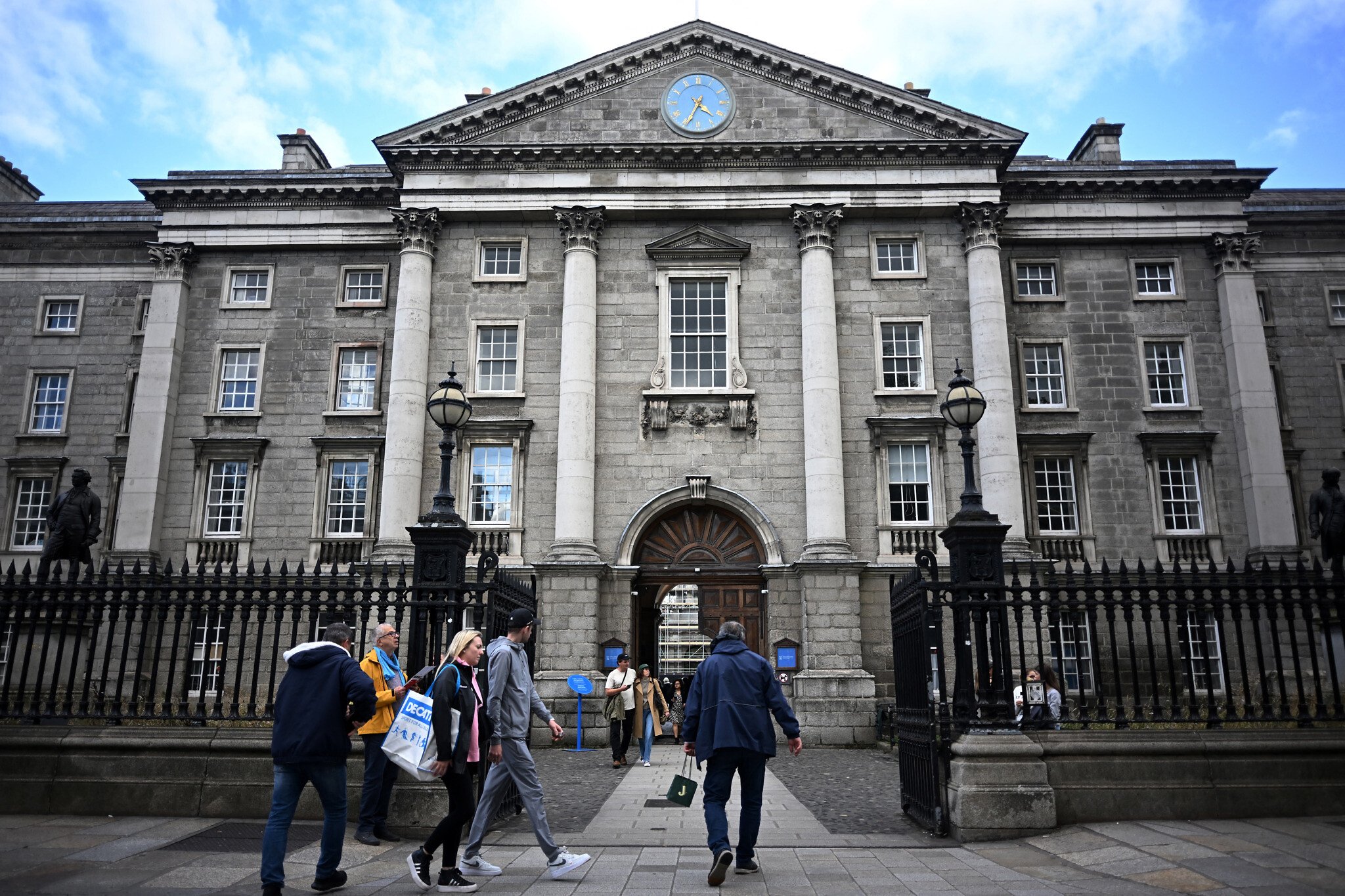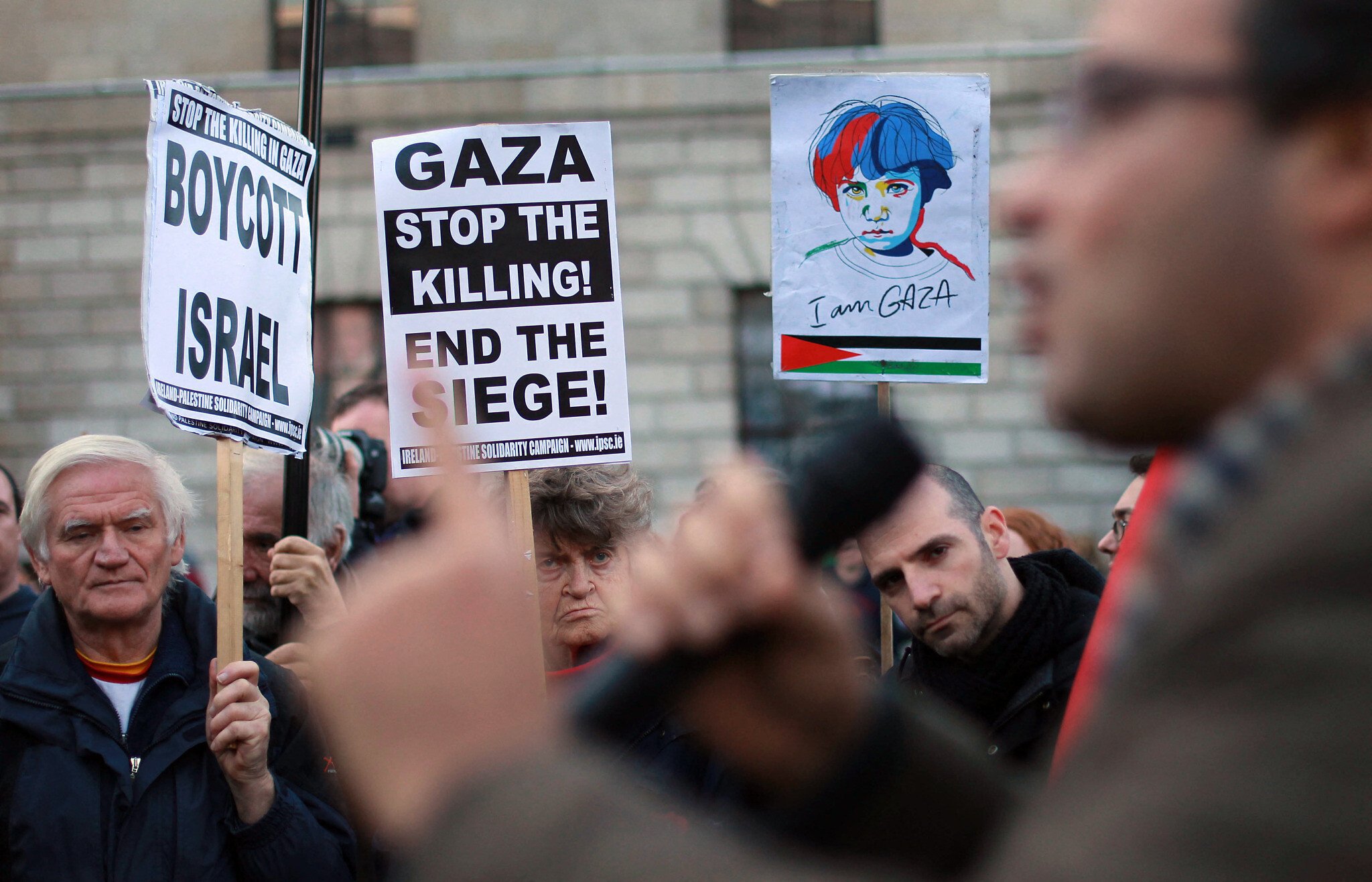



DUBLIN — Ireland’s prestigious Trinity College Dublin said on Wednesday that it would cut all links with Israel in protest of “ongoing violations of international and humanitarian law.”
The university’s board informed students by email on Wednesday that it had accepted the recommendations of a task force to sever “institutional links with the State of Israel, Israeli universities and companies headquartered in Israel.”
The recommendations would be “enacted for the duration of the ongoing violations of international and humanitarian law,” said the email sent by the board’s chairman Paul Farrell, and seen by AFP.
The task force was set up after part of the university’s campus in central Dublin was blockaded by students for five days last year in protest against the war in Gaza, where Israel is battling to defeat the Hamas terror group following the October 7, 2023, massacre in southern Israel.
Among the task force’s recommendations approved by the board were pledges to divest “from all companies headquartered in Israel” and to “enter into no future supply contracts with Israeli firms” and “no new commercial relationships with Israeli entities.”
The university also said that it would “enter into no further mobility agreements with Israeli universities.”
Trinity has two current Erasmus+ exchange agreements with Israeli universities: Bar Ilan University, an agreement that ends in July 2026, and the Hebrew University of Jerusalem, which ends in July 2025, the university told AFP in an email.
The board also said that the university “should not submit for approval or agree to participate in any new institutional research agreements involving Israeli participation.”
It “should seek to align itself with like-minded universities and bodies in an effort to influence EU policy concerning Israel’s participation in such collaborations,” it added.
Ireland has been among the most outspoken critics of Israel’s response to the October 7 onslaught, in which terrorists belonging to Hamas and other Palestinian terror groups killed some 1,200 people, mostly civilians, and took 251 hostages.
Polls since the start of the war have shown overwhelming pro-Palestinian sympathy and anti-Israel sentiment in Ireland.

In May 2024, Dublin joined several other European countries in recognizing Palestine as a “sovereign and independent state.”
Ireland then joined South Africa’s International Court of Justice case accusing Israel of committing genocide in Gaza — charges angrily denied by Israel.
In December, Foreign Minister Gideon Sa’ar ordered the closure of the country’s embassy in Dublin, blaming Ireland’s “extreme anti-Israel policies.” Sa’ar later said that Dublin “encouraged” antisemitism under then-prime minister Simon Harris whom he accused of hating Jews.
Most recently, Ireland’s cabinet gave its formal backing last month to drafting legislation on restricting trade with Israeli communities in East Jerusalem and West Bank settlements.
While Ireland does very little trade with West Bank settlements, Irish Prime Minister Micheal Martin said it was a “symbolic move” that follows Ireland’s official recognition last year of a Palestinian state.
The bill is unlikely to be passed by parliament until later in the year.
Reuters and Times of Israel staff contributed to this report.
